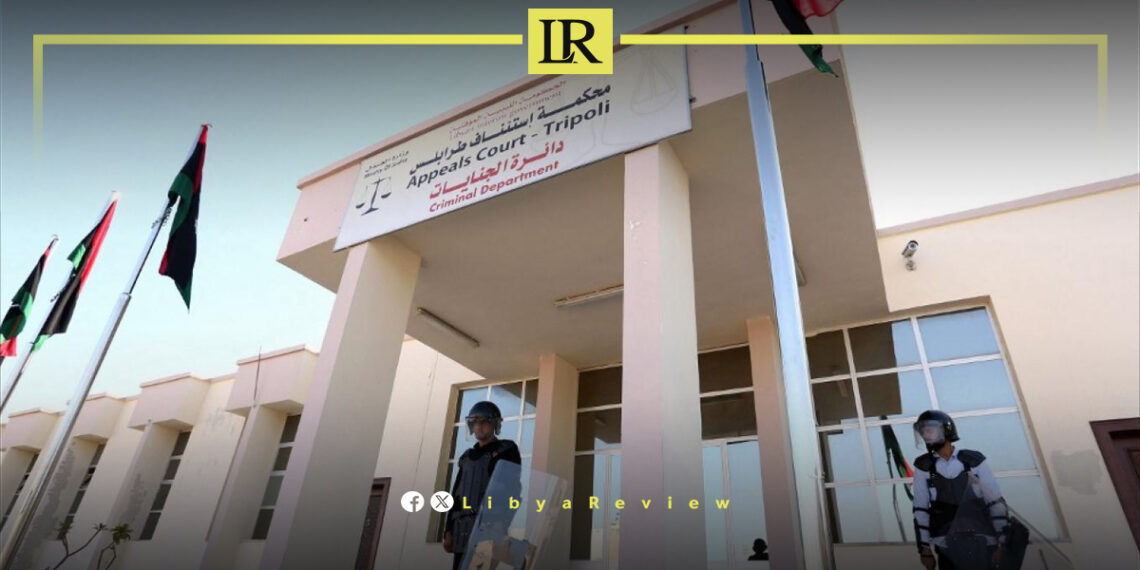On Sunday, the Tripoli Criminal Court postponed the hearing of the Abu Salim Prison Massacre case to November 3, according to Mostafa Al-Majdoub, legal advisor to the Association of Victims of the Abu Salim Massacre.
The court’s decision follows an order from the Public Prosecutor’s Office to re-arrest 79 suspects who had been previously released and continue the detention of three key figures, including former intelligence chief Abdullah Al-Senussi.
For the first time, Mansour Dhao, former head of Gaddafi’s special security forces, appeared before the Tripoli Criminal Court on Sunday via video link from Misrata, according to Al-Majdoub.
In March 2023, the Supreme Court’s Criminal Chamber overturned a June 2022 ruling by the Tripoli Court of Appeals that transferred the case to a military court. The Supreme Court instead restored the case to civilian courts for review, marking a key victory for the families of victims and human rights organizations seeking justice. The case was referred to a newly formed judicial panel at the Tripoli Court of Appeals.
The Association of Families of the Abu Salim Martyrs has long advocated for swift justice. In February 2023, the association urged the national judiciary to expedite the case and ensure that all responsible are held accountable. The families also demanded that no accused individuals be released until final rulings are issued.
Following the second meeting of the Transitional Justice Movement, the families called for the full enforcement of the 2013 Transitional Justice Law, which was enacted to prevent future human rights violations and ensure that those responsible for atrocities, such as the Abu Salim Massacre, are prosecuted. This law is seen as critical for ensuring accountability and justice for the victims of the massacre.
The Abu Salim Prison Massacre occurred in 1996, under the regime of Muammar Gaddafi, when security forces killed more than 1,200 prisoners following an internal protest. The victims were largely political prisoners, and the massacre remained hidden from public view for many years.
The case has implicated several top figures from Gaddafi’s regime, including Abdullah Al-Senussi, Gaddafi’s intelligence chief, and Mansour Dhao, the head of Gaddafi’s special security forces. Both face charges related to their alleged roles in orchestrating and carrying out the massacre.
The road to justice for the families of the victims has been long and fraught with challenges. Although the massacre occurred in 1996, the extent of the atrocity only became widely known after Gaddafi’s fall from power in 2011. Since then, legal proceedings have been slow, with delays caused by Libya’s political instability and complex legal battles.


